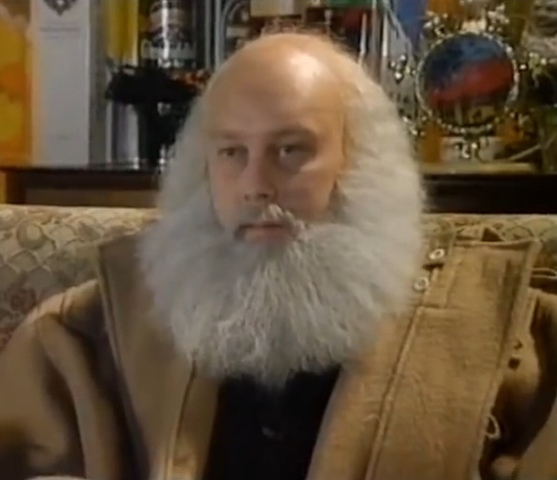- Welcome to Cook'd and Bomb'd.
-
 Threelon Musk: pl3ase lik3...
by buttgammon
Threelon Musk: pl3ase lik3...
by buttgammon
[Today at 11:57:18 AM] -
 Jimmy Carr's new Netflix special....
by Barry Admin
Jimmy Carr's new Netflix special....
by Barry Admin
[Today at 11:56:00 AM] -
 That band IDLES are still...
by Kankurette
That band IDLES are still...
by Kankurette
[Today at 11:55:54 AM] -
 Cigs, Mate?
by El Unicornio, mang
Cigs, Mate?
by El Unicornio, mang
[Today at 11:55:19 AM] -
 Trans Mania: Graham Linehan...
by Kankurette
Trans Mania: Graham Linehan...
by Kankurette
[Today at 11:55:03 AM] -
 Richie Sunak - The Decline...
by Huxleys Babkins
Richie Sunak - The Decline...
by Huxleys Babkins
[Today at 11:49:41 AM] -
 Football Thread 23-24: Part...
by Thursday
Football Thread 23-24: Part...
by Thursday
[Today at 11:46:05 AM] -
 GC Rowling's Icky Bog Adventures,...
by Dr M1nx PhD
GC Rowling's Icky Bog Adventures,...
by Dr M1nx PhD
[Today at 11:41:27 AM] -
 Comedy That's Changed Your...
by Twilkes
Comedy That's Changed Your...
by Twilkes
[Today at 11:37:38 AM] -
 Conan O'Brien Needs A Thread...
by Des Wigwam
Conan O'Brien Needs A Thread...
by Des Wigwam
[Today at 11:35:09 AM]
Members
 Total Members: 17,819
Total Members: 17,819 Latest: Jeth
Latest: Jeth
Stats
 Total Posts: 5,576,702
Total Posts: 5,576,702 Total Topics: 106,650
Total Topics: 106,650 Online Today: 869
Online Today: 869 Online Ever: 3,311
Online Ever: 3,311- (July 08, 2021, 03:14:41 AM)
Users Online
 Users: 108
Users: 108 Guests: 575
Guests: 575 Total: 683
Total: 683 buttgammon
buttgammon Theotherside
Theotherside KennyMonster
KennyMonster ajsmith2
ajsmith2 Registering to lurk
Registering to lurk Oh, Nobody
Oh, Nobody thatguyfromthatthing
thatguyfromthatthing famethrowa
famethrowa jonbob
jonbob Bobby Treetops
Bobby Treetops Petey Pate
Petey Pate Adey
Adey Auntie Beryl
Auntie Beryl This isnt witty sorry
This isnt witty sorry Mr Farenheit
Mr Farenheit hcrumble
hcrumble machotrouts
machotrouts Stone Cold Steve Austin
Stone Cold Steve Austin Ruben Remus
Ruben Remus Steven88
Steven88 Schnapple
Schnapple Kankurette
Kankurette Dayraven
Dayraven lebowskibukowski
lebowskibukowski Ja'moke
Ja'moke Alberon
Alberon BlodwynPig
BlodwynPig burst_arm
burst_arm bigfatheart
bigfatheart The Always Red Society
The Always Red Society Funcrusher
Funcrusher bollocks
bollocks MojoJojo
MojoJojo Wezzo
Wezzo ros vulgaris
ros vulgaris SirDoris
SirDoris Blumf
Blumf JaDanketies
JaDanketies Bunty Levert
Bunty Levert Kenkun
Kenkun SteveDave
SteveDave Zetetic
Zetetic DelurkedToHelp
DelurkedToHelp beanheadmcginty
beanheadmcginty AliasTheCat
AliasTheCat Cuellar
Cuellar Dr M1nx PhD
Dr M1nx PhD teabone
teabone Billy Brown
Billy Brown Autopsy Turvey
Autopsy Turvey notcherhorowitz
notcherhorowitz The Dog
The Dog LynnBenfield69
LynnBenfield69 mikeyg27
mikeyg27 Thursday
Thursday Gurke and Hare
Gurke and Hare Gethin Grave
Gethin Grave Huxleys Babkins
Huxleys Babkins Jumblegraws
Jumblegraws letsgobrian
letsgobrian Bingo Fury
Bingo Fury MrMealDeal
MrMealDeal pigamus
pigamus Nibbsy
Nibbsy Tread
Tread Butchers Blind
Butchers Blind Small Potatoes
Small Potatoes Mobbd
Mobbd madwolfinamatchbox
madwolfinamatchbox pancreas
pancreas Psybro
Psybro EOLAN
EOLAN Pixel Pusher
Pixel Pusher Vodkafone
Vodkafone Video Game Fan 2000
Video Game Fan 2000 Sad Ken
Sad Ken j_u_d_a_s
j_u_d_a_s Gambrinus
Gambrinus RHX
RHX Tapiocahead
Tapiocahead Underturd
Underturd
